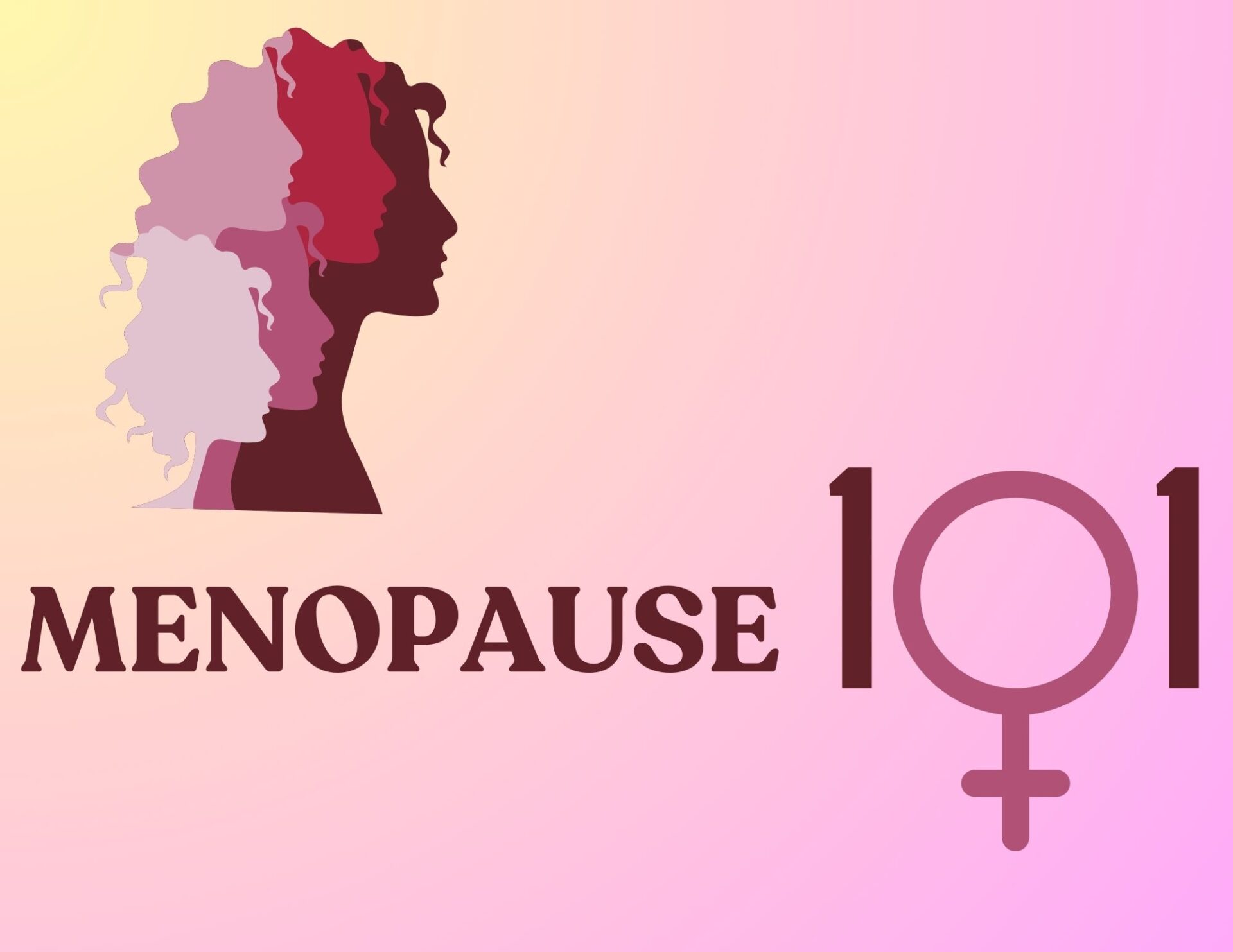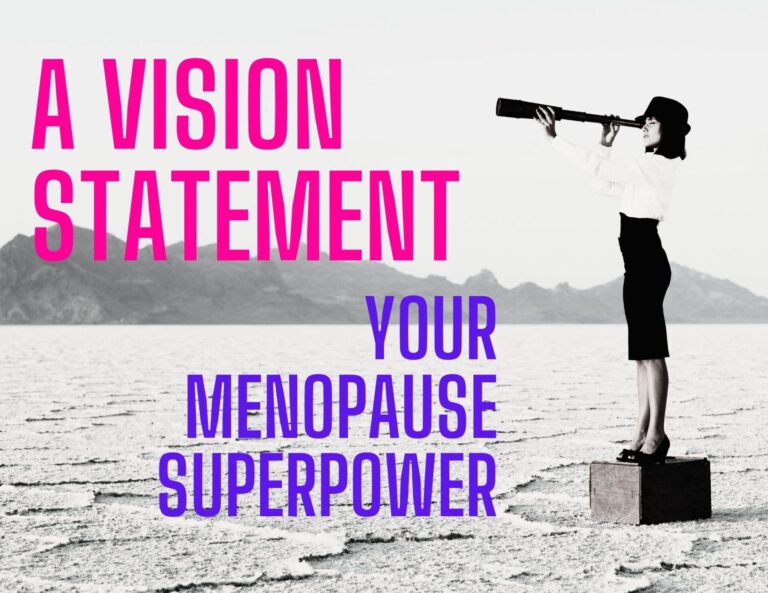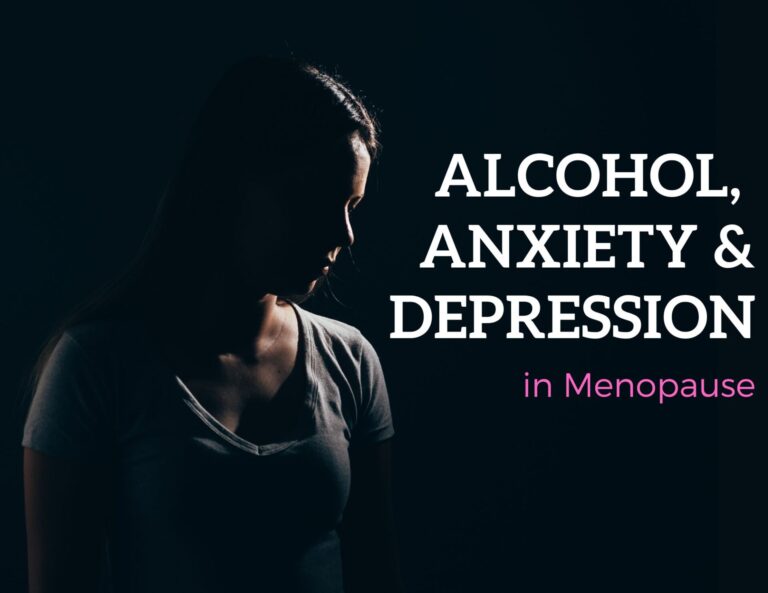This post may contain affiliate links. Read the full disclosure here.
Menopause 101: What’s Happening To Your Body (And How to Navigate it)
Menopause is a significant transition in a woman’s life, but it’s often misunderstood. It’s not an illness, and it doesn’t mean the end of vitality or wellness. Instead, it’s a natural biological process—one that brings changes, yes, but also opportunities.
As I approach my 50th birthday, I’m experiencing firsthand the ups and downs of perimenopause. From hot flushes to brain fog, I get it. That’s why I decided to pursue my certification as a Menopause Health Coach Specialist. The more I’ve learned, the more I realize how much misinformation is out there—and how important it is to talk about menopause openly, honestly, and without fear.
🩷 This post is all about what’s really happening to your body during menopause, common symptoms, and how you can navigate this phase with confidence.
What Is Menopause, Exactly?
Menopause is officially diagnosed when you’ve gone 12 consecutive months without a menstrual period. But this transition doesn’t happen overnight—it’s a process that can take years. Here’s a quick breakdown:
✅ Perimenopause:
This phase can start in your late 30s or 40s and can last anywhere from a few years to over a decade. Hormone levels fluctuate, leading to symptoms like irregular periods, mood swings, and hot flushes.
✅ Menopause:
This is the point when you’ve gone a full year without a period. Your ovaries significantly slow down the production of estrogen and progesterone.
✅ Postmenopause:
The years after menopause. Some symptoms may subside, while others, like changes in bone density or metabolism, can become more noticeable.
🩷 Understanding where you are in this journey can help you make informed choices about your health and well-being.
Common Symptoms & Why They Happen
Menopause symptoms are largely due to fluctuating (and eventually declining) estrogen levels. Some of the most common ones include:
- Hot Flushes & Night Sweats – Sudden waves of heat, flushing, and sweating, often followed by chills.
- Mood Changes – Anxiety, depression, or increased irritability due to hormonal shifts.
- Sleep Disruptions – Difficulty falling or staying asleep, sometimes linked to night sweats.
- Brain Fog & Forgetfulness – Trouble concentrating or feeling mentally sluggish.
- Weight Changes – Metabolism slows, and body fat distribution shifts.
- Changes in Libido – Some women experience lower sex drive, vaginal dryness, or discomfort.
- Joint Pain & Muscle Aches – Estrogen helps reduce inflammation, so lower levels can contribute to aches and stiffness.
🩷 Not everyone experiences all of these symptoms, and their severity varies widely. But if you do feel like menopause is throwing you off balance, you’re not alone—and there are ways to manage it.
Navigating Menopause: What You Can Do
While menopause is inevitable, struggling through it doesn’t have to be. Here are some ways to support your body during this transition:
1. Prioritize Nutrition 🥦
- Focus on protein and fiber to support metabolism and gut health.
- Incorporate calcium and vitamin D to support bone strength.
- Eat healthy fats (avocados, nuts, and olive oil) to support hormone function.
- For personalized supplement recommendations, work with a registered dietitian rather than guessing what you need.
2. Move Your Body 💃
- Strength training can help maintain muscle mass and bone density.
- Cardio supports heart health and mood regulation.
- Yoga or stretching improves mobility, flexibility, and stress reduction.
- Find movement you enjoy—consistency matters more than intensity.
3. Sleep Smarter 🛌
- Keep your bedroom cool and dark to combat night sweats.
- Create a wind-down routine without screens before bed.
- Limit caffeine and alcohol, which can disrupt sleep patterns.
4. Manage Stress & Prioritize Mental Health 😌
- Deep breathing, meditation, and mindfulness can help reduce anxiety.
- Connecting with friends, therapy, or support groups can be invaluable.
- Give yourself grace—this transition can be emotional, and that’s okay.
5. Consider Professional Guidance 🥼
- If menopause symptoms are severely impacting your quality of life, talk to your healthcare provider.
- Hormone Replacement Therapy (HRT) is an option for some women, but it’s not the right choice for everyone—discuss risks and benefits with your doctor.
- A menopause health coach (me!) or women’s health expert can help you create a plan tailored to your needs.
☀️ Reframing Menopause: A New Beginning
For too long, menopause has been treated as something to dread. But it’s not an ending—it’s a new chapter. It’s a time to:
- Reevaluate what you want for the next stage of your life.
- Let go of things that no longer serve you.
- Embrace self-care in a way that truly supports your well-being.
🩷 Yes, your body is changing. But you are still you. You still deserve to feel vibrant, strong, and empowered.
💡 Bottom Line
Menopause is a natural part of life, not a condition to be “fixed.” Understanding what’s happening to your body can help you make informed choices about how to navigate it with confidence. Whether you’re in perimenopause, menopause, or postmenopause, remember: you’re not alone in this journey. I am right here with you and I would love to help you.
💗 Join StrongHER Together
Ready for deeper support? StrongHER Together is my private community for women navigating perimenopause and menopause — a space for connection, expert coaching, wellness challenges, and real talk. Whether you’re seeking clarity, confidence, or just a circle of women who get it, you’ll find it here.
📬 Stay in the Know
Want more tips, advice, and updates on my programs? Join my mailing list to stay up to date on everything health, wellness, and fitness-related. Let’s navigate your journey together!







